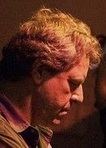AtEacher's Passing
Mr. Kline died six months ago. I only recently heard. His given name was Peter, but none of his students would have the temerity of calling him that. He was my English teacher for two years, and it was his class that persuaded me I wanted to become a writer.
He once told me I was the best French student in his class. I basked for a week in the accolade, before realizing I was the only French student in his class. It didn’t matter. A word of phrase, a backhanded compliment from this thin, balding man, was the highest commendation I could conceive.
I last saw him sone seven or eight years ago at a class reunion. I’m not sure he remembered who I was but he pretended to. I told him I had written books and he nodded. I like to believe I saw a faint gleam in his eyes.
I’ve often thought of him and pondered how one person, seen in 45-minute classes a few times a week decades ago, could have wielded—unknowingly—such influence. I don’t know if he was a writer himself. I did a casual Google search and found nothing, but this doesn’t matter either.
Once, when I was seventeen, and my French accent still made conversation with other students difficult, Mr. Kline stopped me as I left his class. He asked me what I knew about the playwright Eugène Ionesco. That year, the French theatre group, of which my mother was a member, was rehearsing a Ionesco play, Rhinoceros, so I was slightly familiar with the author’s work.
“He’s French,” I said with Gallic certainty.
“Oh,” said Mr. Kline. “I thought he was half-Romanian.”
“French,” I repeated.
“I see,” said Mr. Kline. “Do you know what the play is about?”
I didn’t. “Zoos?”
I was wrong on both counts. Mr. Kline did not correct me. I was, after all, the best French student in his class.
He once told me I was the best French student in his class. I basked for a week in the accolade, before realizing I was the only French student in his class. It didn’t matter. A word of phrase, a backhanded compliment from this thin, balding man, was the highest commendation I could conceive.
I last saw him sone seven or eight years ago at a class reunion. I’m not sure he remembered who I was but he pretended to. I told him I had written books and he nodded. I like to believe I saw a faint gleam in his eyes.
I’ve often thought of him and pondered how one person, seen in 45-minute classes a few times a week decades ago, could have wielded—unknowingly—such influence. I don’t know if he was a writer himself. I did a casual Google search and found nothing, but this doesn’t matter either.
Once, when I was seventeen, and my French accent still made conversation with other students difficult, Mr. Kline stopped me as I left his class. He asked me what I knew about the playwright Eugène Ionesco. That year, the French theatre group, of which my mother was a member, was rehearsing a Ionesco play, Rhinoceros, so I was slightly familiar with the author’s work.
“He’s French,” I said with Gallic certainty.
“Oh,” said Mr. Kline. “I thought he was half-Romanian.”
“French,” I repeated.
“I see,” said Mr. Kline. “Do you know what the play is about?”
I didn’t. “Zoos?”
I was wrong on both counts. Mr. Kline did not correct me. I was, after all, the best French student in his class.
Published on June 30, 2021 14:49
No comments have been added yet.



